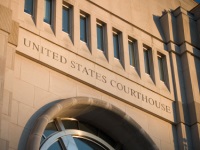In a decision rendered from the United States District Court for the Northern District of Illinois, Eastern Division, Judge Ronald Guzmán granted summary judgment on the SEC’s insider trading claims as to three defendants but allowed claims as to one defendant to proceed to trial. The SEC’s claims against all of the defendants focused on suspiciously-timed sales and other circumstantial evidence, but failed to identify specific tippers who provided defendants with inside information. The case highlights the SEC’s aggressive strategy in pursuing insider trading claims without direct evidence of tipping. The court’s decision also underscores the importance of pursuing motions during discovery in order to preserve arguments, or obtain sanctions establishing evidentiary points, in order to later use discovery misconduct to bolster otherwise thin bases for liability.
Defendant Yonghui Zhang worked full time for a company called Global Education & Technology Group, Ltd. (“GEDU”). GEDU was founded by Zhang’s younger brother and sister-in-law, and provides educational programs and services in China including consultation concerning higher education opportunities in the United States. Zhang purchased 7,900 GEDU American Depository Shares on the NASDAQ for almost $40,000 on the last trading day before GEDU announced its acquisition by Pearson plc. Zhang had never purchased GEDU stock for himself, spent more than three times his annual salary to purchase the securities, and made a profit of close to $50,000. Zhang moved for summary judgment, relying on his testimony that he had no knowledge of the Pearson acquisition and pointing to the SEC’s failure to identify a specific “tipper” who told him about the acquisition.
The Court denied his motion. Zhang’s office was on the same floor as his brother and sister-in-law’s offices, and Zhang had numerous communications with them and with GEDU senior management aware of the Pearson acquisition. Zhang argued that the SEC did not point to any particular records of communications or opportunities to communicate, but the SEC had sought those types of details and Zhang failed to provide them in discovery. READ MORE →












